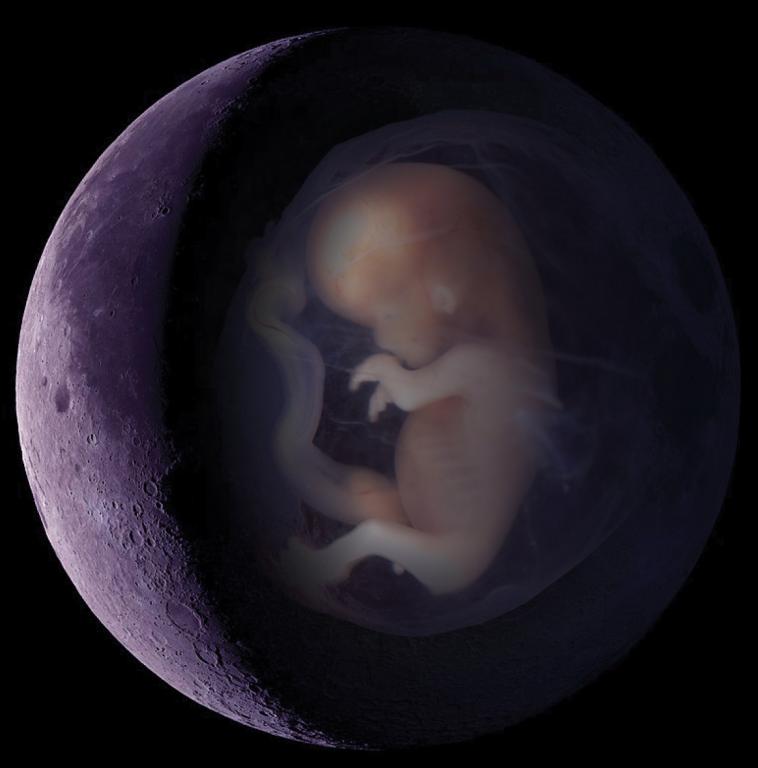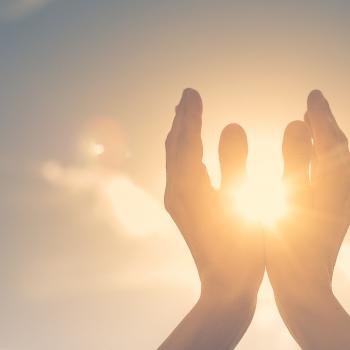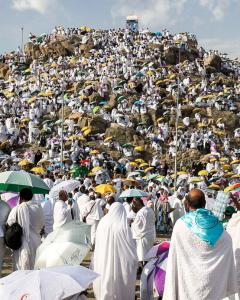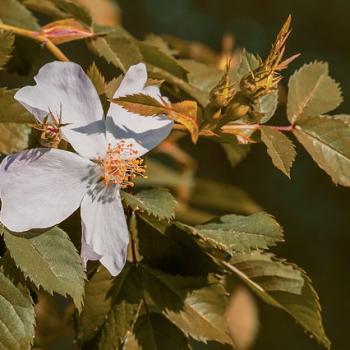
As we enter the last ten days of Ramadan, my thoughts turn to Laylatul Qadr, the Night of Power. Reflecting on what Muhammad (peace be upon him) experienced on this night – the receiving of the first revelation (and perhaps the seed of the entire Quran) – it strikes me how deeply mystical Islam is. In fact, it seems to me that to really understand and embrace Islam, one necessarily has to be a mystic.
Yet many Muslims regard mysticism as something “dreamy”; some even react to it with vehement condemnation. Mysticism seems to me to be the opposite of dreamy; it’s the pursuit of the Real. We might define the mystic as someone who senses that God is not some external authority figure separate from His creation, but a Reality living within it, and especially within the human heart; and that we can learn to dissolve our own hard-hearted selves into this greater Reality through spiritual practice.
This seems to be clearly borne out by the experiences of Muhammad on the Night of Power. Meditating silently in a cave, Muhammad was not presented with a physical book from which to read by an external authority figure. When he was asked to “recite” the word of Allah, he was reciting something he found within his own heart. There is nothing more deeply mystical than this proposition! Perhaps we should really take time to dwell on it. Clearly, the Divine encounter he experienced was internal, or at least took place in a mystical realm where the boundaries of the self are more fluid than we experience in our normal waking lives.
Here is the message, from Surah Al-Alaq, that Muhammad received in that first revelation:
In the Name of God, the Infinitely Compassionate and Most Merciful
Recite! In the name of your Sustainer Who created,
created the human being out of a connecting cell:
Recite! And your Sustainer is the Most Generous,
the One Who taught by the pen,
taught humankind what it did not know.
No, but humankind goes beyond all bounds
when it considers itself self-sufficient.
In truth, to their Sustainer all will return.[i][96: 1–8]
What strikes me is that when we read the Quran, we tend to focus on the fact that we are reading the words of Allah, and we tend forget that these words are coming from the mouth of Muhammad, who was gifted them within his own being. Dwelling on Surah Al-Alaq, this mind-boggling truth may be driven home to us once more.
And if the hadith are to be believed, it becomes even more mysterious, for we are hearing three voices: the voices of God, Gabriel, and Muhammad are all speaking these words to us. The hadith (versions in Bukhari and Muslim) claim that the angel Gabriel asked Muhammad to recite three or four times, eventually grasping him tightly until he did so. Interestingly, in describing that first revelation, the hadith don’t describe Muhammad repeating Gabriel’s words after him. Rather, it’s as if there is a silent, heart-stopping moment in the narrative where Gabriel’s words simply become Muhammad’s and the two of them take flight as one. Their “embrace” in the hadith is surely symbolic of this.
It’s as if we are viewing that first revelatory encounter on a lower rung of the ladder of Being than in the Quran, a level where we can still talk about separate individuals. Nevertheless, we seem to witness a dissolving process as Gabriel and Muhammad merge. As we read it we may have a sense that we are spiralling back to the perspective of the Quran, where all identities are subsumed within God. In the Quran, Muhammad and Gabriel simply disappear in the blazing glory of Allah.
The name of the surah is often poorly translated into English as “The Clot” or “The Blood Clot”. Muhammad Asad gave a closer approximation to the meaning of alaq when he translated it as “germ cell’, but, interestingly, it is female translators who seem to have come closest to capturing its meaning in more recent times. Sahih International, a team of three female American converts, gave us “clinging substance”, while Camille Helminski quoted above gives us “connecting cell”:
Recite! In the name of your Sustainer Who created,
created the human being out of a connecting cell…
The above translation is satisfying because on one level it evokes the embryo’s ability to divide into interconnected cells and so eventually form a human being. Perhaps it is appropriate that it is women, who have the potential to birth human life, who have been able to unfold this meaning for us in English. At an even smaller physical level, ‘connecting cell’ might also evoke the inter-connected spirals of our DNA. In fact, this is something which Camille Helminski explores in her poem “Angel Wings” (in the collection Ramadan Love Songs). In imagining Muhammad’s encounter with Gabriel, she refers to A (adenine), C (cytosine), G (guanine), and T (thymine), the fundamental units of the genetic code, and gives us a sense of the presence of God dancing within us:
Our longing for You
is Your Longing
for us.
We are a mirror
for Your Beauty
and Your Strength—
ACGT,
a code, a song—
we are just beginning
to see
the structure
that underlies
everything that is—
a mirror of itself,
of You,
in our very cells,
we dance
in spirals
of awakening.[ii]
For me, the most profound commentaries on the Quran are always from poets – those who are able to connect their critical minds to their intuitive hearts. Asad Ali, another Sufi poet of the modern era, defines alaq as follows in his poem “Life Geometry”:
O Creator of the major miracle,
You’ve made Man from “Alaq”;
“Alaq” is a bit of nothing,
but Your Will has opened it quite wide,
until in its fineness it has extended
into Being with time and range.[iii]
This inconsequential, connecting cell has the potential not only to grow into a human being, but to expand into Being itself. Does this describe what happened to Muhammad, allowing him to receive revelation?
Returning to the surah, there is the mention of the Pen through which we are taught by God. A pen needs to connect with something in order to communicate – a blank piece of paper if we are talking about a physical pen – or a receptive human heart if we are talking about a metaphysical one. Here’s how our most famous Sufi poet, Mevlana Rumi, describes this connection:
Does anyone write something on a place
that has already been written over,
or plant a sapling where one already grows?
No; he seeks a blank piece of paper
and sows the seed where none has yet been sown.
Sister, be bare earth; be a clean piece of paper
untouched by writing, that you may be ennobled by the pen of revelation,
so that the Gracious One may sow seed within you.[iv]
Perhaps the above verses can offer yet another understanding of alaq: a seed, or connecting cell, that Allah plants in the receptive human heart so that it may become fully human. For to be fully human is to make the connections that will lead us back to Allah.
To be receptive, the human heart must recognise that we are not “self-sufficient”, and so the surah warns us against this. To consider ourselves as separate from God, to take a stance in opposition to the mystical perspective and insist that God is some kind of external being, is surely to consider ourselves as ‘self-sufficient’, for taking such a view insists that there is a boundary where God ends and we begin. But the Quran makes it clear that God never ends: Wherever you turn, there is the Face of God [2:115]. We swim in God like an embryo in the womb.
As Ramadan draws to a close, we might spend time with the poets of Islam and really dwell on the miracle of revelation and the intimate connection we all have to our Rabb. For there is a giddy slipstream that Camille Helminski describes in her poem “Spirals of Awakening”, which is beckoning us to return into a Greater Self:
…we keep circling,
circles rising
upon circles,
upon circles,
radiating angels
from and to
the center
with You,
where we are Home,
and through every spiral
of transcendence,
Subhanallah,
it is You,
Ya Rabb
al Alameen.[v]
[i] The Light of Dawn, A Daybook of Verses from the Holy Qur’an, selected and rendered by Camille Adams Helminski
[ii] Ramadan Love Songs, by Camille Hamilton Adams Helminski
[iii] Happiness Without Death: Desert Hymns, by Asad Ali, trans. by Helminski and Shihabi
[iv] Mathnawi V, 1961-1964, from Jewels of Remembrance, trans. by Kabir and Camille Helminski
[v] Ramadan Love Songs, by Camille Hamilton Adams Helminski












